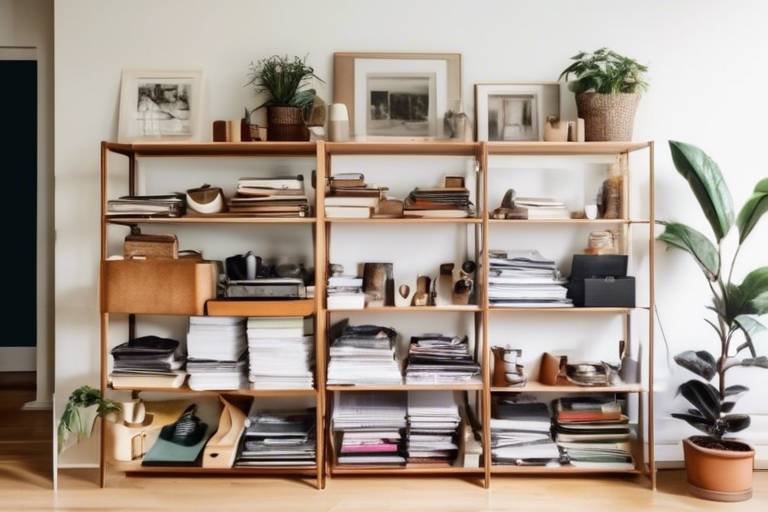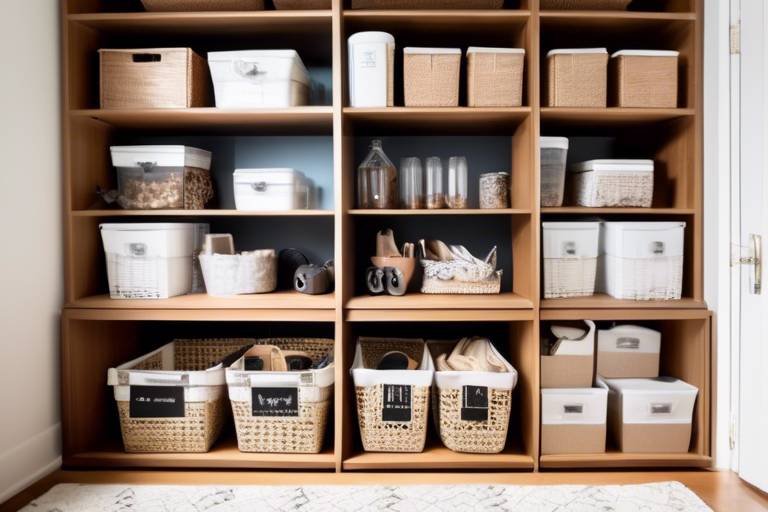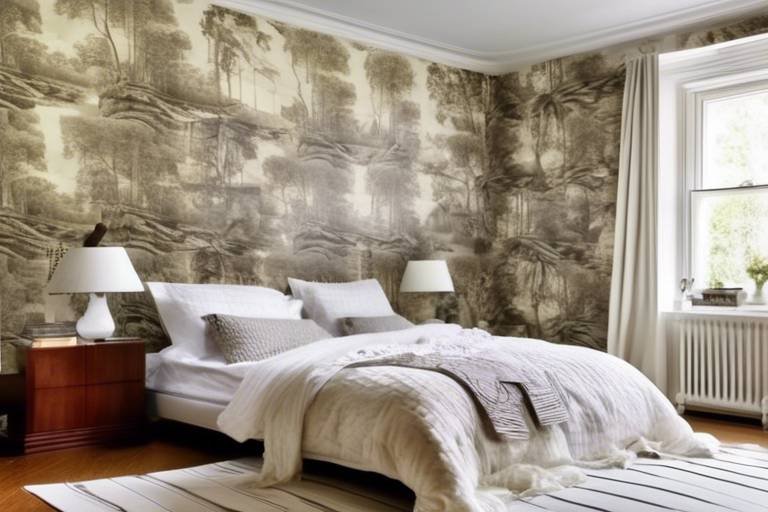How to Declutter Your Home and Live More Simply
Do you often find yourself overwhelmed by the clutter in your home, yearning for a simpler and more organized living space? Decluttering your home can be a transformative process that not only clears physical space but also brings clarity and peace of mind. By letting go of unnecessary items and embracing a minimalist mindset, you can create a harmonious environment that promotes well-being and contentment.
When it comes to decluttering, the benefits go far beyond just a tidy home. Studies have shown that a clutter-free environment can have a positive impact on your mental health, reducing stress and anxiety while increasing productivity and overall quality of life. Imagine waking up to a space that is free of chaos and distractions, allowing you to focus on what truly matters.
There are various methods you can explore to declutter effectively, such as the renowned KonMari method, which focuses on keeping only items that spark joy, or taking a minimalist approach by simplifying your possessions to the essentials. You can also opt for a room-by-room decluttering strategy, tackling one area at a time to prevent feeling overwhelmed.
Organizational tips play a crucial role in maintaining a clutter-free home. By creating storage solutions that work for you and establishing daily decluttering routines, you can prevent the accumulation of unnecessary items and ensure that your space remains organized and functional. Remember, the goal is not just to declutter once but to maintain a simplified lifestyle in the long run.
Embracing minimalism is not just about getting rid of excess stuff; it's a mindset shift towards prioritizing experiences over possessions and embracing a sense of contentment with what you have. By letting go of the constant need for more, you can create space for what truly brings you joy and fulfillment.
When decluttering, it's essential to address the emotional attachment we often have to our belongings. While it's natural to feel sentimental about certain items, learning to let go and cherish memories instead of physical objects can be liberating. By donating or selling items you no longer need, you not only reduce waste but also potentially help others in need and earn some extra income.
Long-term maintenance is key to sustaining a clutter-free home. Regular decluttering sessions, mindful consumption habits, and staying committed to a simpler lifestyle are essential for preventing clutter from creeping back into your space. Remember, decluttering is not just a one-time task but a continuous journey towards living more intentionally.
Are you ready to embark on a decluttering journey that will not only transform your living space but also your mindset? By decluttering your home and embracing simplicity, you can create a sanctuary that nurtures your well-being and allows you to focus on what truly matters in life.

Benefits of Decluttering
Decluttering your home goes beyond just tidying up; it offers a myriad of benefits that can positively impact various aspects of your life. By clearing out unnecessary items and organizing your living space, you are not only creating a visually appealing environment but also fostering mental clarity and emotional well-being.
One of the key advantages of decluttering is the positive impact it can have on your mental health. A clutter-free space can help reduce feelings of overwhelm and anxiety, promoting a sense of calm and tranquility. When your surroundings are organized, your mind can also feel more at ease, allowing you to focus better and think more clearly.
Moreover, decluttering can significantly boost your productivity. A tidy home means less time spent searching for misplaced items and more time dedicated to important tasks and activities. With a streamlined living space, you can experience increased efficiency and effectiveness in your daily routines.
Additionally, decluttering can enhance the overall quality of your life. By letting go of excess belongings, you create room for things that truly matter to you. This process of prioritization can lead to a greater sense of fulfillment and satisfaction, as you surround yourself only with items that bring value and joy into your life.
Furthermore, decluttering can help reduce stress levels. Clutter has been linked to increased stress and feelings of being overwhelmed. By eliminating unnecessary items and organizing your space, you can create a peaceful sanctuary that promotes relaxation and rejuvenation.
In essence, decluttering is not just about cleaning up; it's about creating a harmonious environment that supports your well-being on multiple levels. From mental clarity and productivity to reduced stress and increased quality of life, the benefits of decluttering are truly transformative.
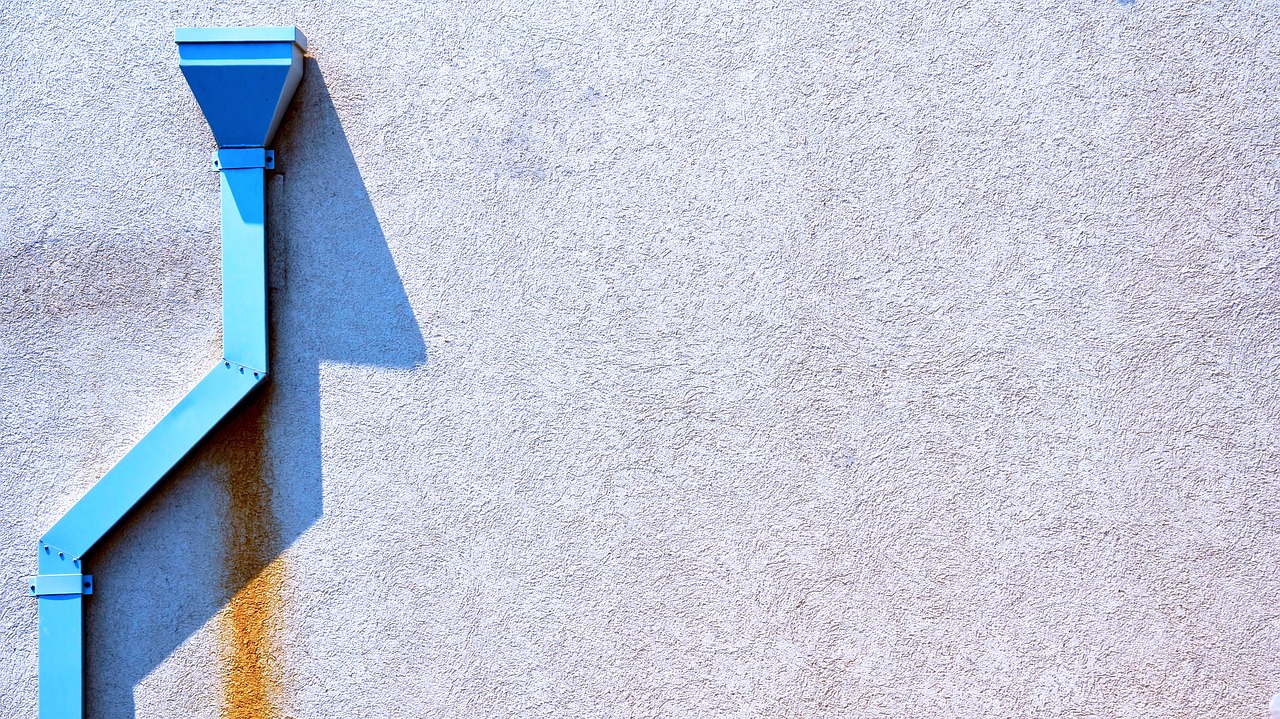
Decluttering Methods
Decluttering your living space is a transformative process that can bring a sense of peace and order to your home. By removing unnecessary items and organizing your belongings, you can create a space that is not only visually appealing but also promotes a calmer and more focused mindset. Let's explore some practical tips and strategies for decluttering effectively and living a more simplified life.
Decluttering goes beyond just tidying up your space; it has numerous benefits for your overall well-being. A clutter-free environment can have a positive impact on your mental health, reducing feelings of stress and anxiety. Additionally, a decluttered space can increase your productivity and efficiency, allowing you to focus better on tasks at hand. Embracing decluttering can lead to a higher quality of life and a greater sense of peace and contentment.
When it comes to decluttering, there are various methods you can explore to find what works best for you. The KonMari method, popularized by Marie Kondo, focuses on keeping items that spark joy and discarding the rest. This method encourages a more mindful approach to decluttering, ensuring that each item in your home serves a purpose and brings you happiness. Alternatively, you can opt for a minimalist approach, which involves simplifying your possessions to the essentials and living with only what you truly need. Room-by-room decluttering is another effective method that allows you to tackle one area at a time, making the process more manageable and less overwhelming.
Organizing your belongings is key to maintaining a clutter-free home. Consider investing in storage solutions such as bins, baskets, and shelving units to keep items neatly arranged and easily accessible. Labeling containers and creating designated spaces for different categories of items can help you stay organized in the long run. Regularly decluttering and reassessing your possessions can prevent clutter from building up again and ensure that your home remains tidy and welcoming.
Minimalism is not just about owning fewer things; it's a mindset that prioritizes quality over quantity and intentionality in all aspects of life. By embracing minimalism, you can focus on what truly matters to you, whether it's experiences, relationships, or personal growth. Letting go of excess possessions can free up physical and mental space, allowing you to appreciate the things that bring you genuine joy and fulfillment.
Instead of letting unused items gather dust, consider selling or donating them to someone who could benefit from them. Selling items not only reduces waste but also allows you to earn some extra income. Donating items to charity or those in need can make a positive impact on others while decluttering your home. By passing on items you no longer use, you can create a ripple effect of generosity and kindness in your community.
Establishing daily decluttering routines can help you maintain a clean and organized living space effortlessly. Set aside a few minutes each day to tidy up and put things back in their designated places. By incorporating decluttering habits into your daily routine, you can prevent clutter from piling up and ensure that your home remains a peaceful sanctuary free from chaos and distractions.
Many of us form emotional attachments to our belongings, making it challenging to let go of certain items even if they no longer serve a purpose. It's essential to acknowledge the sentimental value of these items while also recognizing that memories reside within us, not in material possessions. By practicing gratitude for the memories associated with sentimental items and letting go of the physical objects, you can create a space that is filled with positive energy and devoid of unnecessary clutter.
Maintaining a decluttered home requires ongoing effort and commitment. Schedule regular decluttering sessions to reassess your belongings and ensure that you're not accumulating unnecessary items. Adopt mindful consumption habits by being intentional about the things you bring into your home, focusing on quality over quantity. By staying dedicated to a simpler and more intentional lifestyle, you can enjoy the long-term benefits of a clutter-free and harmonious living environment.
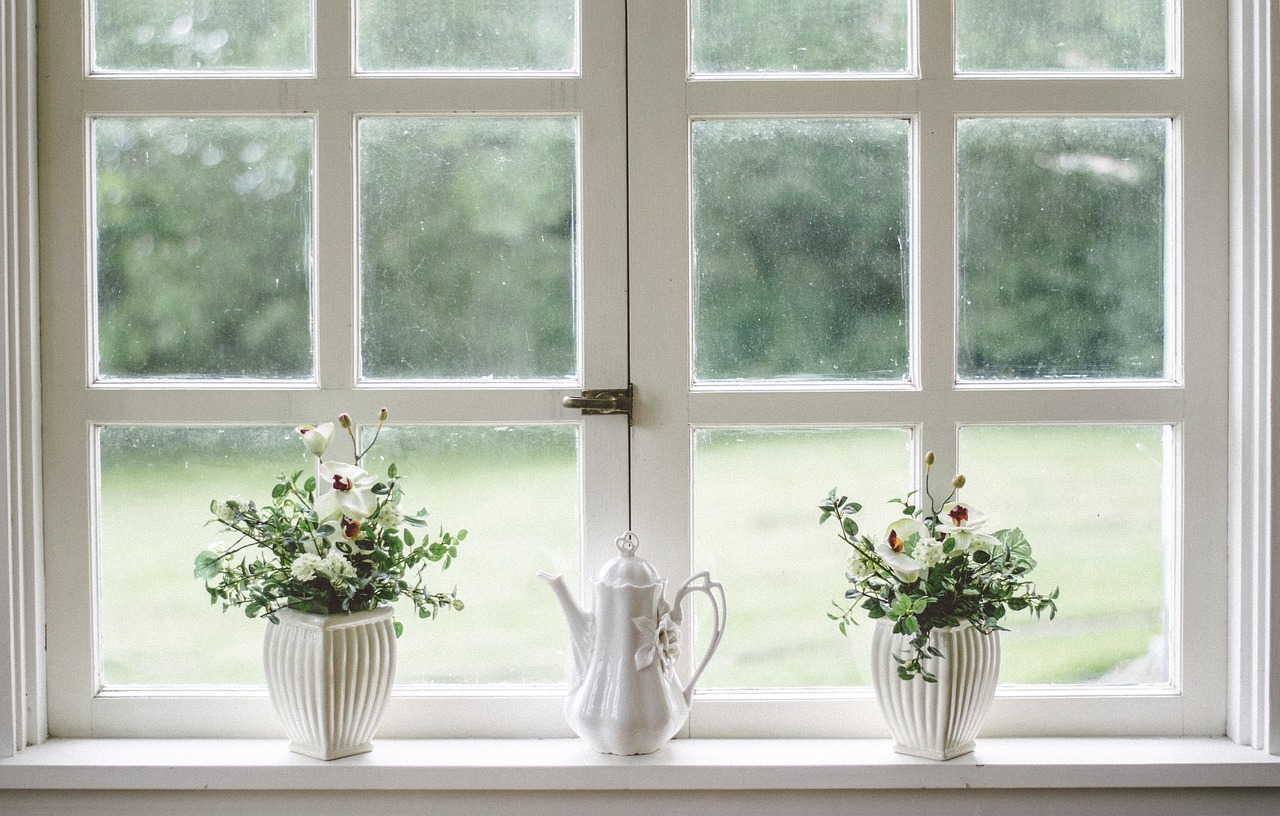
Organizational Tips
Organizing your living space is essential for maintaining a clutter-free environment that promotes peace and efficiency. One effective organizational tip is to categorize your belongings based on their use and frequency. By grouping similar items together, you can easily locate them when needed and avoid unnecessary clutter.
Another helpful strategy is to invest in storage solutions that maximize space utilization. Utilizing storage bins, baskets, shelves, and organizers can help keep items neatly stored and easily accessible. Consider utilizing vertical space with wall-mounted shelves or hooks to free up floor space and create a visually appealing environment.
Creating designated storage areas for specific items can also streamline organization. Designate a place for everything in your home, from keys and mail to shoes and accessories. By assigning a specific location for each item, you can prevent clutter from accumulating and maintain a tidy living space.
Implementing a regular decluttering routine is crucial for staying organized in the long run. Set aside time each week to assess your belongings and eliminate items that no longer serve a purpose or bring you joy. Regular decluttering sessions can prevent unnecessary accumulation of items and help you maintain a clutter-free home.
Consider adopting a minimalist approach to organization by embracing the philosophy of "less is more." Simplifying your belongings and focusing on quality over quantity can lead to a more streamlined and aesthetically pleasing living space. Minimalism encourages intentional consumption and mindful living, promoting a sense of clarity and purpose in your home.

Embracing Minimalism
Embracing minimalism is not just about decluttering physical possessions; it's a mindset that focuses on the essentials and eliminates the excess. Picture a room with only the necessary furniture, allowing space to breathe and move freely. Minimalism encourages you to let go of the non-essential, both in material possessions and in life, to create a sense of calm and clarity.
By embracing minimalism, you are prioritizing quality over quantity. It's about owning things that serve a purpose or bring genuine joy, rather than accumulating items for the sake of having more. This approach can extend beyond your home and into your daily routines, relationships, and overall lifestyle.
Minimalism invites you to reassess your values and goals, helping you identify what truly matters to you. It challenges the societal norm of constant consumption and encourages a more intentional way of living. Instead of being weighed down by excess stuff, you can focus on experiences, relationships, and personal growth.
One key aspect of minimalism is learning to appreciate the beauty of simplicity. It's about finding contentment in the present moment, rather than constantly seeking more. By decluttering your physical space and mental clutter, you can create room for peace, creativity, and mindfulness in your life.
Embracing minimalism is a journey that involves continuous reflection and refinement. It's not about achieving perfection but rather about making conscious choices that align with your values and goals. As you simplify your surroundings and mindset, you may find yourself feeling lighter, more focused, and better able to appreciate the beauty in the simplicity of everyday life.
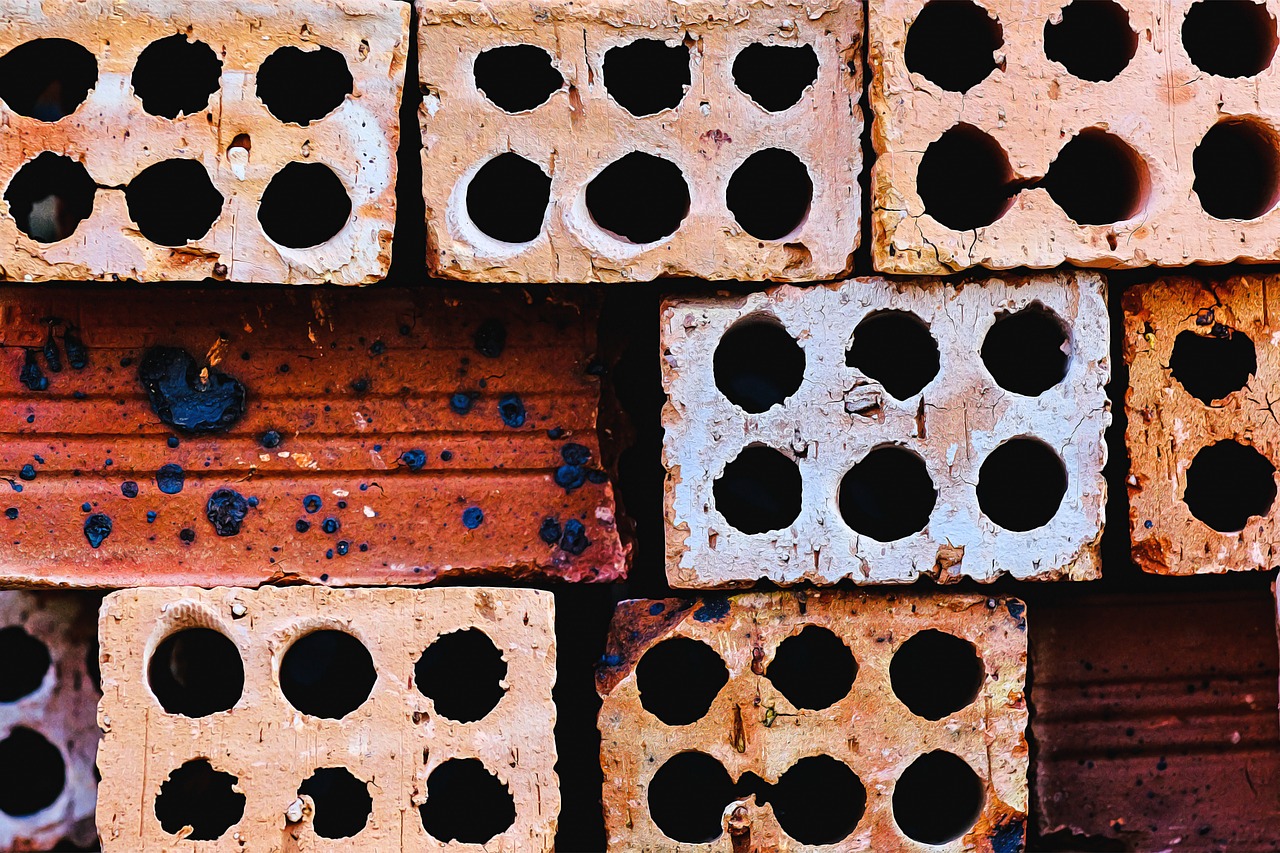
Selling and Donating Items
When it comes to decluttering your home, one of the key steps is deciding what to do with the items you no longer need or use. Selling or donating these items not only helps clear out space but also brings about various benefits. By selling items that are in good condition, you can earn some extra income while giving someone else the opportunity to enjoy them. This process not only reduces waste but also promotes a sustainable lifestyle by extending the life cycle of the items.
On the other hand, donating items can be a meaningful way to declutter your home while helping those in need. Items that no longer serve a purpose for you could greatly benefit others. By donating clothes, furniture, or household items, you are contributing to charitable organizations and supporting communities in need. This act of generosity not only reduces clutter in your home but also brings a sense of fulfillment and positivity to your life.
When deciding whether to sell or donate items, consider the condition of the items, the value they hold for others, and the impact your actions can have. Both selling and donating items are ethical choices that can contribute to a more sustainable and compassionate lifestyle. So, next time you declutter your home, think about the positive impact you can make by selling or donating items you no longer need.
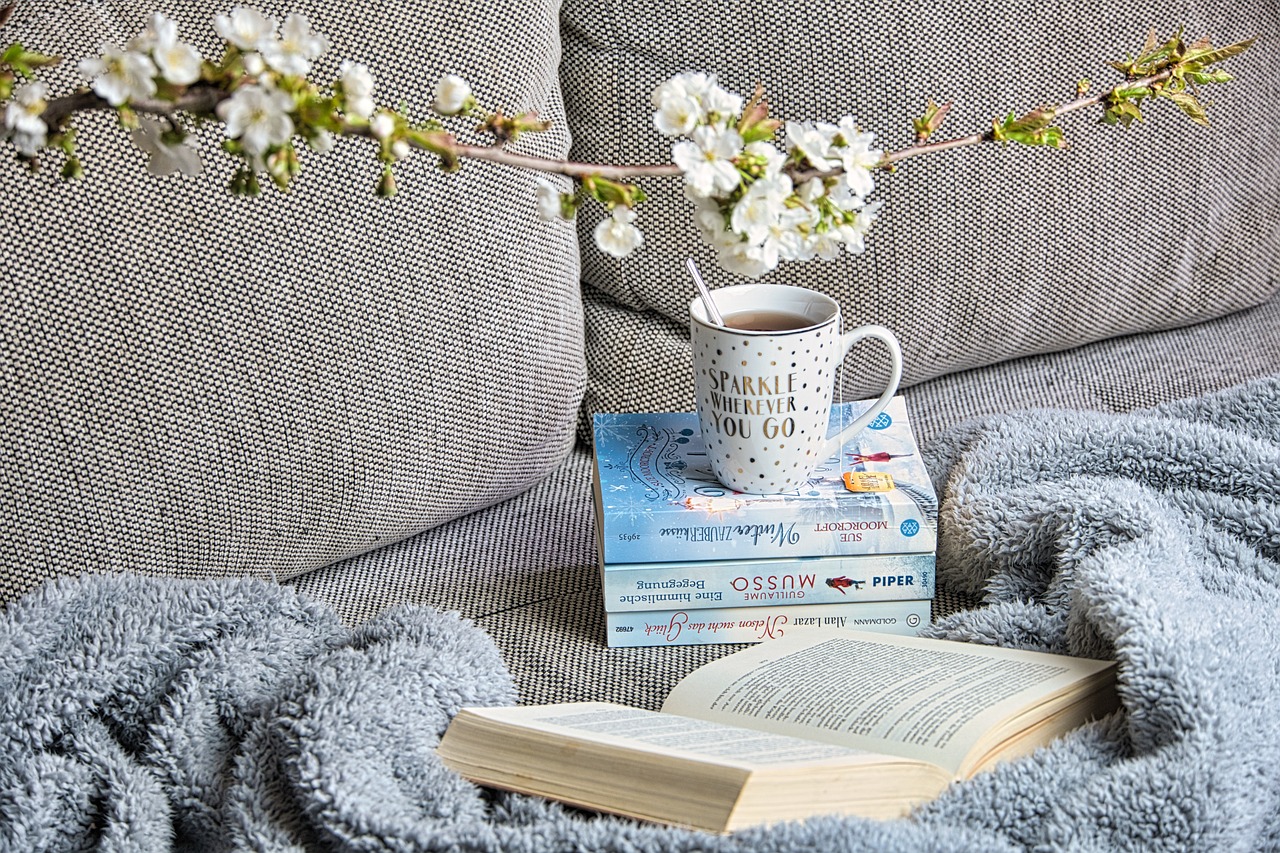
Creating Daily Routines
Creating daily routines is essential for maintaining a clutter-free home and promoting a sense of order and efficiency in your daily life. By establishing consistent habits and practices, you can prevent clutter from accumulating and ensure that your living space remains organized and functional.
Start by setting aside a specific time each day to dedicate to decluttering tasks. Whether it's in the morning before starting your day or in the evening before winding down, having a designated decluttering routine can help you stay on top of maintaining a tidy environment.
Consider creating a checklist of daily decluttering tasks to guide your routine. This could include simple activities such as making your bed, putting away dishes, or clearing off countertops. By breaking down decluttering into manageable steps, you can make the process more manageable and less overwhelming.
Implementing a "one in, one out" rule can also be beneficial in preventing new clutter from entering your home. For every new item you bring in, make a conscious effort to remove an old or unnecessary item. This practice can help you maintain a balanced and clutter-free living space.
Additionally, incorporating mindfulness into your daily routines can enhance your decluttering efforts. Take a few moments each day to assess your living space, identify areas that need attention, and reflect on the importance of simplicity and organization in your life.
By establishing daily decluttering routines and habits, you can not only maintain a tidy and organized home but also cultivate a mindset of intentionality and mindfulness in your daily life. Consistency is key in creating a clutter-free environment that promotes peace, productivity, and well-being.

Emotional Attachment to Items
Emotional attachment to items is a common phenomenon that can make decluttering a challenging task. Many people develop sentimental connections to their possessions, associating them with memories, emotions, or identity. Letting go of these items can evoke feelings of loss, nostalgia, or guilt. However, it's important to remember that possessions are just objects and that memories reside within us, not in material things. By decluttering and releasing items we no longer need, we create space for new experiences and opportunities to enter our lives.

Long-Term Maintenance
Long-term maintenance of a decluttered home is essential to ensure that your living space remains organized and free of unnecessary items. One effective tip for maintaining a clutter-free environment is to schedule regular decluttering sessions throughout the year. By setting aside dedicated time to assess your belongings and remove any items that no longer serve a purpose, you can prevent clutter from building up over time.
In addition to decluttering sessions, developing mindful consumption habits is key to long-term maintenance. Before making a new purchase, consider whether the item is truly necessary and adds value to your life. Avoid impulse buying and focus on acquiring items that align with your values and lifestyle. By being intentional about what you bring into your home, you can prevent unnecessary clutter from accumulating.
Another important aspect of long-term maintenance is staying committed to a simpler, more intentional lifestyle. Embrace the principles of minimalism and prioritize quality over quantity in your possessions. Regularly assess your belongings and let go of items that no longer serve a purpose or bring you joy. By cultivating a mindset of simplicity and mindfulness, you can create a harmonious living environment that promotes well-being and contentment.
Frequently Asked Questions
- How can decluttering benefit my mental health?
Decluttering can have a positive impact on your mental health by reducing feelings of overwhelm and promoting a sense of calm and clarity. A tidy space can help alleviate stress and anxiety, allowing you to focus better and feel more at ease in your environment.
- What is the KonMari method of decluttering?
The KonMari method, popularized by Marie Kondo, emphasizes keeping only items that spark joy in your life. It involves decluttering by category rather than by location and encourages a mindful approach to organizing belongings based on what truly brings happiness.
- How can I let go of sentimental items during decluttering?
Letting go of sentimental items can be challenging, but it's important to remember that memories reside within us, not within the physical objects. One strategy is to take photos of sentimental items before parting with them, allowing you to cherish the memories without the clutter.
- What are some tips for maintaining a clutter-free home long-term?
To maintain a clutter-free home, it's essential to establish regular decluttering routines, practice mindful consumption by being intentional about what you bring into your space, and stay committed to simplifying your lifestyle. Consistency is key to preventing clutter from accumulating again.

